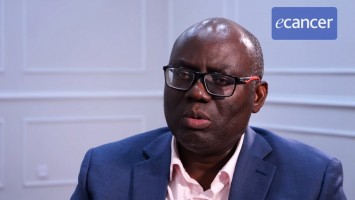Our study is titled the Workforce, Economic and Infrastructural Barriers to Global Oncology Clinical Trial Participation with a focus on sub-Saharan Africa. What bred this study is the fact that sub-Saharan Africa has a really growing oncology burden. In spite of that we have very limited clinical trials in the region. For context, in 2019 there were only 109 open clinical trials in the entire continent comprising 54 countries, and when we compared that to the United States where there were over 7,500 clinical trials within that same timeframe, the disparities are just too stark. As such we need to make a lot of improvement to ensure equitable cancer care in the region.
What was the methodology and what were the findings?
What we did for our study, and this is quite interesting, we utilised the World Health Organisation’s pan-African clinical trial registry which is the regional database for oncology and clinical trials, actually, in the region. We were able to extract information for 151 oncology trials across 255 sites in the region. We also, at the same time, we performed a literature review of oncologist distribution in the region as well.
We wanted to basically extract all of that information to find out what trials were currently available and what support was available to help those trials scale in the region.
This is what we found. We found that most of the trials were concentrated in three countries: Egypt, Kenya and Nigeria. They hosted most of the trials: Egypt hosted about 46% of trials, Kenya hosted 18% of trials and Nigeria hosted 11% of trials. We also found that the oncologist distribution was quite skewed in the direction of the countries that were represented. For example, Egypt actually had over 85% of the oncologists in the region. What we were able to find was that there were just under 1,800 clinical oncologists in the entire region and Egypt had 85% of those oncologists. So that meant that the remaining 15% of oncologists were found in the other countries in sub-Saharan Africa.
Now, while Kenya and Nigeria hosted 18% and 11% of trials respectively, they had a very limited number of oncologists and we thought that was pretty fascinating.
How can these results help in policy making and overcoming these barriers?
We hope that our data is able to provide a roadmap for policy makers to focus on actual strategic investments and ensure that countries that need the most cancer care can actually get them. For example, we found that a lot of the clinical trials were focussed on breast cancer actually and cervical cancer as well. A lot of the other cancers like lung cancers aren’t really represented as well. So we do think that our study would be able to help to provide the necessary information that is needed for policy makers to provide help to the regions of Africa that need the most help.
What has been done so far and are there any future plans?
There are so many areas for improvement. We do know that there are a couple of organisations that are working very closely with the oncologists in the region to provide care and to ensure that research capacity is being built. For example, the AORTIC organisation, which is the African Organisation for Research and Training in Cancer in Africa, has been very instrumental for research capacity building. But there is still a lot more to be done and we do think that with strategic investment this can be possible.
Is there anything else you would like to add?
Every barrier represents patients, actual patients, without life-saving oncology treatments and access to trials. Now it is not possible to have precision oncology without representation of all populations. So because we know that the pan-African genome is very important in ensuring that we have adequate precision oncology, we definitely need to have proper representation and strategic investment for the region.








